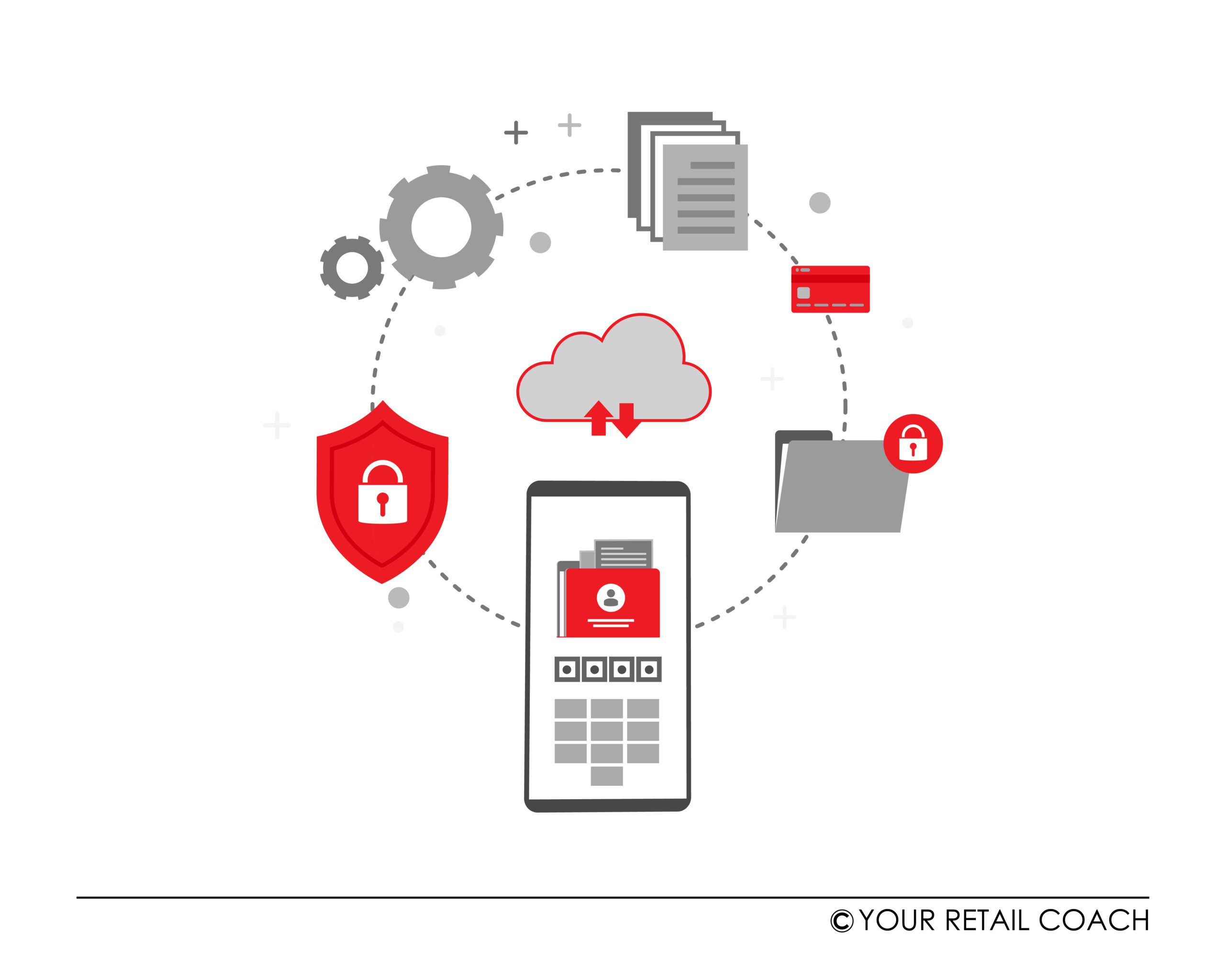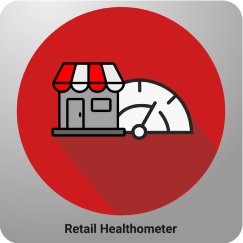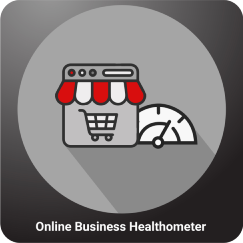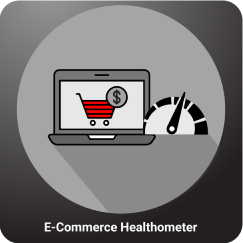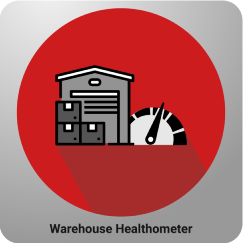Basics first for Beginners
Before jumping into the world of business software applications, let us first cover some basics. It is not easy for beginners to differentiate between what is what. Do not get confused by the terms and languages used to describe business software products and features. These are all software applications to manage business just like we normally use Microsoft Office products at home for personal purposes. Word is an application. Excel is an application. CRM is a business application. And so on.
Now imagine if you could integrate an online grammar correction software with Word. Grammatical corrections would be suggested as and when you type in the Word document. It would save you time and effort. You will have one less thing to do in completing the writing process. Such integration is also possible between individual business software applications. For example, a software application for customer management (CRM) could be integrated with another application that is for inventory management. This enables businesses to manage multiple functions and processes from one integrated platform (a platform of applications) with relevant functional data from multiple functions on their screens to make business decisions or simply do routine functional duties.
Today, we have cloud-based software applications for business management. They are also acknowledged as Software as a Service (SaaS). Businesses need not install any software on their office computers and rather, access and use a software application or platform provided by a SaaS company remotely over the internet. This has made it possible and easier for businesses from any part of the world to utilise any popular and advanced business software application.
What is Zoho CRM for Retail?
Among many other business management software applications, Zoho offers a CRM application solution for businesses from diverse industries like life sciences, financial services, non-profits, and others including retail. Being an omnichannel CRM, and with a host of other compatible features and benefits, Zoho CRM is a popular CRM solution among retail businesses. It provides an integrated platform to manage marketing, sales, inventory, and support aiding retail operations. The product quickly gained popularity among small businesses and home offices. With improvisations, now it is reaching out to medium and larger businesses as well as per suitability.
Zoho CRM is ideal for retail businesses that adopt a customer-centric way of operating the business. This necessitates that they have a robust, integrated CRM platform in place. And Zoho CRM provides this opportunity. Retailers can run targeted campaigns to reach out to important customers. With the option of integrating various communication modes, customers could be communicated via multiple channels giving them an omnichannel experience. Customers have the option of making their purchases directly from the online list/catalogue of the offerings. With social media becoming an ocean of information for reading popular behavioural trends, retailers have a window of opportunity to gauge consumer behaviour from within the Zoho CRM. Of course, various reports and insights could be generated within the application for better planning, strategy formulation, and decision-making. In addition to internal applications like Zoho Inventory, Zoho Desk, and Zoho, Zoho CRM could be also integrated with the external environment via LinkedIn, G Suite, Twitter, Outlook, and even Spotify.
Challenges in implementing Zoho CRM Retail solutions
Jumping in Without Assessment
As a business entity, you should know why you are getting an asset on board. It is not different from why you would select a particular supplier over others or recruit one candidate over the other applicants. How do you expect the Zoho CRM to help your business? Do you understand its features and their implications? By understanding, we mean understanding as good as knowing why we drink water. Are these going to resolve your problems or meet your specific business or functional intent? Without these assessments, your business could end up having incompatible software or making an unrequired investment.
Issues of Compatibility and Customisation
When an ERP is implemented, it should facilitate business functioning for all concerned reasons and seasons. If a company’s policy says that purchases above a certain amount would also require the approval of the CFO, the ERP must provide for it. If another policy says that TA-DA bills must be submitted before the 10th of the next month, the ERP must be customised that way. This is mapping of business requirements in ERP implementation. Even the tiniest of detail missed out in the customised ERP have consequences that go beyond simply missing out on taking advantage of having an ERP. Also, the software solutions come in their default and universal versions. Some features have to be tweaked and some others may be redundant. To make an ERP implementation succession, it is also important to customise it for all processes, departments and teams. This makes the involvement of stakeholders from across an organisation critical in ERP implementation exercises. You cannot lay the foundation of a project like this on any unofficial Zoho CRM implementation guide.
Data Migration
Making the leap from one system to another involves a critical activity called data migration. Understand this on a small scale. Imagine you are jumping from Microsoft Office to Google Suite. You have tons of data stored in MS formats. Now that you will be using a new system, you may want all the old data moved from the old platform to the new platform. But what if some of your files show as corrupt in the new system? What if many infographics are not supported in the new platform? These challenges emerge when businesses change their ERPs. It becomes important to check for compatibility in data migration. Also, the migration of unnecessary data has to be avoided to save on digital space and ensure effective performance of the new system.
Financial Implications and Budgeting
Although financial prowess is relative there can be no excuse for any lack of financial discipline irrespective of the size of the business or investments to be made. Competitive pricing is a USP of Zoho. But that does not take away the need for budgeting. It helps businesses keep their expenditure within the planned and manageable spectrum. Plus, ERP implementation often entails budget overruns. It becomes important to create the necessary provisions for such stretches based on realistic assumptions. If an investment has been made, businesses must calculate their ROI and breakeven. Without proper budgeting, cost overruns and unplanned expenditure puts a business in avoidable financial duress. In this particular case, businesses may experience higher Zoho implementation costs without budgeting.
How YRC can help
We provide Zoho CRM implementation services to retail and eCommerce businesses. This entails planning and support services as well. A team of expert retail ERP consultants and Zoho CRM consultants shall pan out the service design and delivery in adherence to planned and customised processes with established standards of performance and strict timelines. We work with a zero-tolerance policy for errors and deviations. Highlighted below are some of our key service areas in Zoho CRM retail implementation.
Need Validation and Feasibility Analysis
One of the preliminary tasks we carry out is need validation and feasibility analysis. Here, we identify and define the grounds for having the Zoho CRM platform. We attempt to settle the score with some of the fundamental questions.
– What are the business objectives of having Zoho CRM?
– How will the business model be affected?
– What are the operational objectives?
– Which retail processes will be affected?
– Can Zoho CRM achieve the business and operational objectives?
– What kind of support systems, internal resources, and organisation changes are required?
– What are the training gaps and requirements?
Mapping of Business Requirements and Product Customisation Support
In the context of ERPs, we first map the business and operational requirements by working in close coordination with clients in a planned and systematic manner. This is done keeping in mind the ERP solution in question. Every activity is carried out via defined processes. In the entire ERP implementation exercise, we work as an extended IT arm of our clients. Our team of Zoho CRM implementation consultants deal with the vendor or channel partner in customising the products to ensure that it meets your business and operational requirements.
Vendor Search and Selection
We design and implement the vendor search and selection process for our clients in their ERP implementation projects. Standard Operating Procedures are used to define this process. There is provision for clients’ approvals at critical junctures or wherever demanded. The standards of input, performance, and output for all activities are defined and mapped. This also covers the vendor search and selection criteria. We follow a free, fair, and transparent mechanism while putting clients’ business requirements first.
Testing and Implementation
Testing is an integral element of our Zoho CRM implementation plan. Testing is done at every necessary point throughout the entire implementation exercise till the successful launch of the platform. Planned and systematic processes are followed to execute various types of testing during multiple stages of incorporation and integration.
Before Zoho implementation planning, our team deliberates and formulates a suitable implementation strategy in consideration of various internal and external factors.
In implementation planning, we go by the standard practice of following the six phases – discovery and planning, design, development, testing, deployment, and support. SOP-driven processes are designed for every phase. The KRAs are defined for the Zoho implementation specialists and other team members involved in the project. This is maintained for all the roles and positions of the stakeholders. Established standards of performance are communicated to every task owner with activity timelines. Deviations detected at any stage of testing or implementation are reported to the vendor team. Feedback and reporting help clients remain in the knowhow of the status of the project.
User SOP Training and User Blueprint Manuals
As the project gets nearer to completion, we begin to pull the strings of training. Here, we provide specific ERP-based user training to employees. User blueprint manuals are prepared that can be also used after training and during routine work. We understand how important it is to have the cooperation of employees for a successful and sustainable ERP implementation. So, our goal is not only to provide technical training but also to make working in a new software environment an engaging and learning experience for your employees. Addressing the humane aspect is critical for an upward-spiralling learning curve in training programs.
YRC is a retail and eCommerce business consultancy brand with a budding international presence in more than 10 countries. As a learning enterprise, we have been in this field for more than 10 years now which involves working with more than 500 clients in more than 20 verticals. As an emerging global brand, we persistently strive to keep our services and solutions at par with international standards. SOP development (process solutions) for retail ERP implementation is one of our core expertise areas.
Found this blog worth Reading?
If you liked this blog, please visit our blog section and YouTube channel for regular updates and insights on the retail and eCommerce industry.


